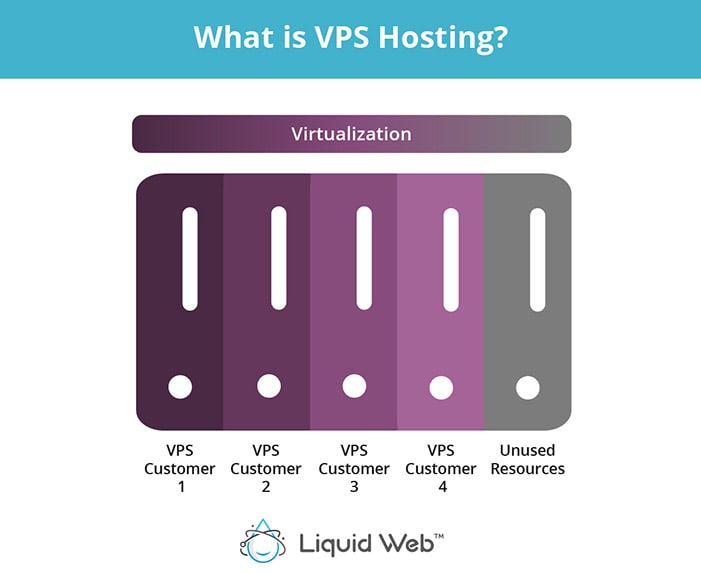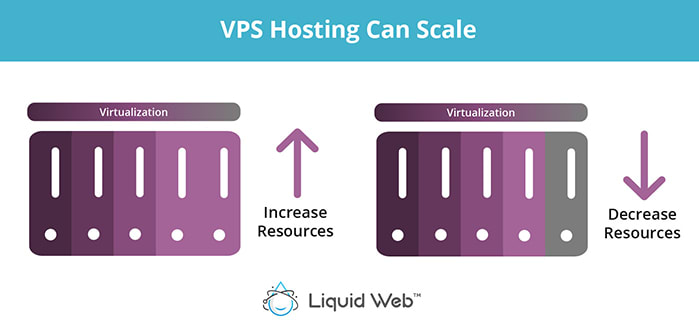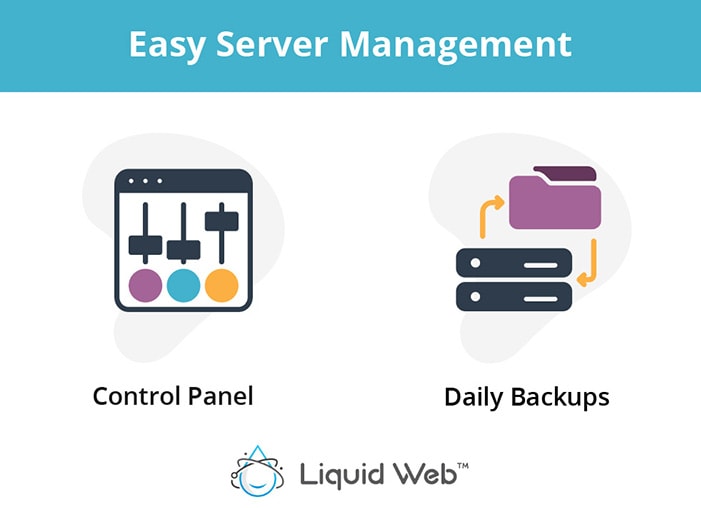
If you have been in or around the web hosting business at all in the past few years, you have heard of the “cloud” or “cloud servers.” You also may have heard of virtual servers, virtual machines, or virtual private servers. There are many different options to choose from. In this article, we will discuss cloud VPS, also called cloud VPS hosting or VPS cloud servers.
What is Cloud VPS?
So, just what is Cloud VPS, and what benefits does it have for your hosting environment? Let’s start with some definitions.
What is the Cloud?
By definition, cloud computing is the practice of using a network of remote servers hosted on the Internet to store, manage, and process data, rather than a local server or a personal computer. Whether you are choosing between Cloud VPS or Cloud Dedicated, the storage remains the same. While a local machine can be used to access the cloud, the intent is that the environment is remote thus removing the need for local resources for storage, management, and processing of data.
With Cloud server hosting, also known as public cloud hosting, things are a bit different. Public cloud is offered on a pay-per-use basis and exists as a virtualized pool of resources across multiple servers utilizing virtualization. This can be advantageous for additional flexibility, scalability, and agility than a VPS server can provide.

What is a Virtual Private Server?
Next, we want to understand what a virtual private server is and how it works. The VPS is a private, dedicated hosting environment that is a partition of specific resources from a parent server through the use of virtualization. We implement a hypervisor or virtual machine manager (computer software, firmware, or hardware that creates and runs virtual machines) to run virtual machines on a host/parent server. Each virtual machine is called a guest instance or child instance, relating a guest to a host and a child to a parent.
Essentially, the VPS is like a physical server that exists as a piece of software running on a host/parent server.
The hypervisor presents to the guest operating systems a virtual operating platform and manages the execution of the guest operating systems. Guest instances that share common operating systems may also share virtualized hardware resources but remain independent of each other.
Cloud VPS Hosting
The Cloud VPS Hosting Platform is a proprietary cloud computing solution based on KVM, Linux’s Kernel-based Virtual Machine. It offers scalable, virtualized resources as a service, purchased on a utility basis. In other words, you pay for what you use. You get dynamic provisioning in a scalable, virtual environment. Resources needed for most projects are available in minutes, giving near-instant access to a new server. Best of all: you can do this without the need of migrating your data or changing your server settings.

Can Cloud VPS Scale?
Liquid Web calls the scaling process resizing. Resizing scales your server resources up or down. Depending on the specific site or application needs, you can have the configuration you need in a short amount of time. Caveats to completion time include any running server processes, storage or memory used, and backups or other processes that are running. The two options for resizing are Quick Resize and Full Resize.
Quick Resize
A Quick Resize allows for access to additional RAM and CPU allocations. This option is ideal for those experiencing a sudden increase in traffic, and need RAM and CPU resources to handle it without increasing storage. The drawback to this is that you pay the same cost as you would with a Full Resize. If a Quick Resize is selected and you wish to have the storage capacity match the Full Resize, you can contact our support team for assistance at a later time.
Full Resize
A Full Resize, as the name suggests, resizes the entirety of the server resources. Full Resizes take longer than Quick Resizes because of the change in physical storage devices. It is recommended that Cloud VPS and Cloud Dedicated server resizes be done during off-peak times.

Managing Your VPS Cloud Server
It has never been easier to access and configure Cloud VPS Hosting. You will have full root-level, SSH, and (S)FTP access provided. Additionally, Windows servers include Admin and RDP access. Most third-party software requires deeper access for installation and configuration. Finally, you can get third-party applications, libraries, and modules that require root access with no trouble.
Server Control Panel
Depending on the level of management you choose, a server control panel is also an option. The tools you need to manage your server are right at your fingertips. Managing your sites is a breeze as well. You will use the control panel to manage every part of your sites, email, DNS, databases, users, and much more.
Internal Dashboard
You will also have an internal dashboard for even more control and information on your server. You will be able to see your current configuration as well as usage for memory, storage, and bandwidth.
Getting close to your bandwidth quota? No problem! The platform will not cut you off once this happens, unlike shared hosting. You pay for additional bandwidth usage or you can upgrade the usage plan right from your Liquid Web account. We make it easy.
VPS Cloud Server Images and Backups
A full server image is a tool for easily creating new servers from existing ones. You can take a current snapshot of your server just as it appears at that moment. This is called a point-in-time snapshot. In addition to creating new servers, you can also use images as restore points in lieu of proper backups. There are also other tips to backing up your VPS to make the process easier.
How Often is My VPS Cloud Server Backed Up?
Cloud Backups are in the DNA of Liquid Web’s cloud platform. We offer daily backups with two options for flexibility. So that you do not have to worry about what to back up, we take the liberty of creating full server backups. Choose your backups options when creating your server, or another time that works for you.
The two options for paying for backups are: Pay per Gig and Quota Pricing.
Pay Per Gig Pricing
With Pay per Gig pricing, you choose the number of days’ worth of daily backups you wish to keep. The maximum number of backup days you can keep is 90 days.
Quota Pricing
Quota Pricing allows you to choose the maximum amount of storage capacity you wish to have for your backups. You pay a flat monthly rate for the quota you select. The platform will automatically keep as many backups as the quota allows up to 90 days. Any backups above and beyond 90 days will be purged.
[ad_2]
Source link







